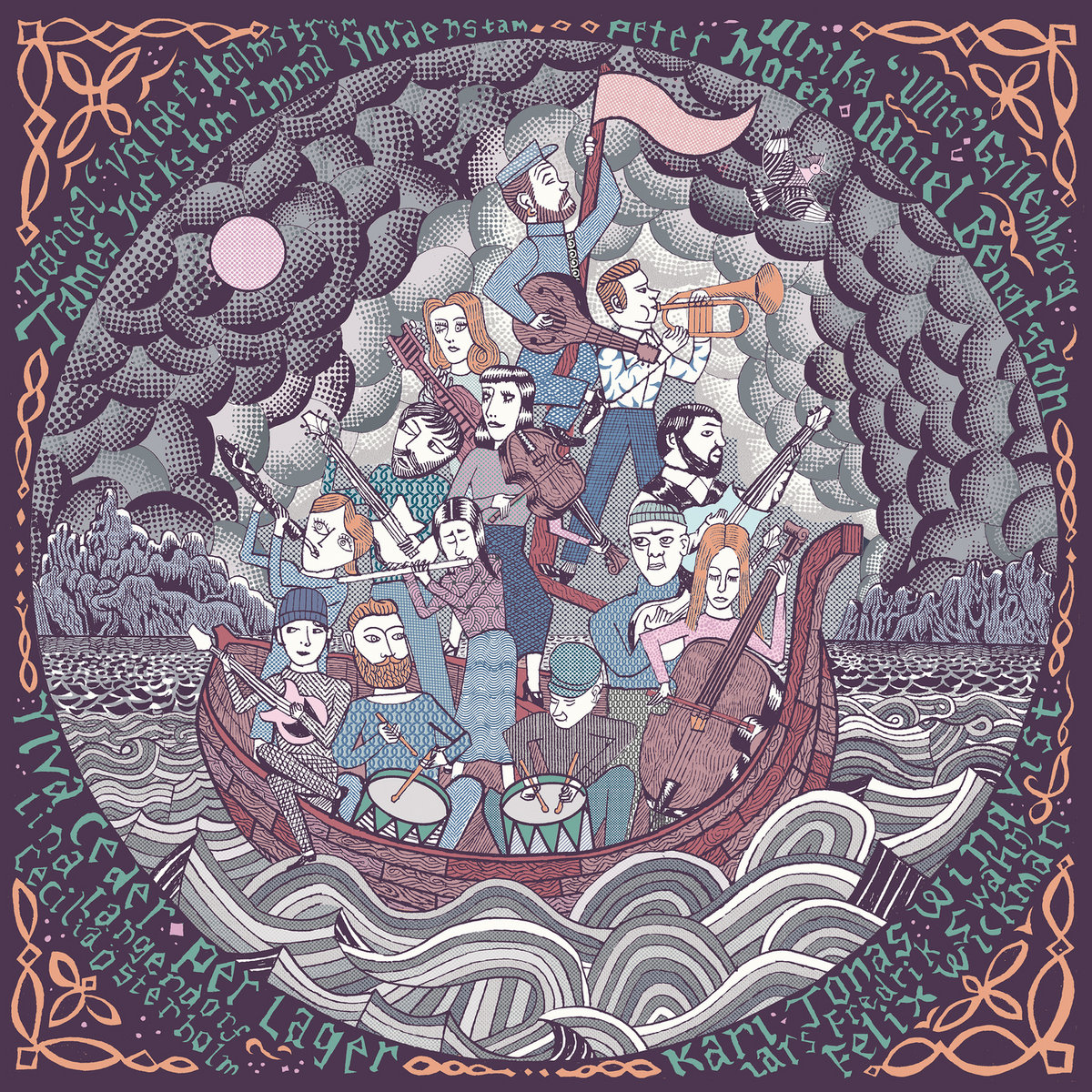The backing band may be new, the recording environment different, but for the most part The Wide, Wide River sounds like business as usual for James Yorkston. Improvised around his songs by a crack team of Swedish musicians, the album’s dominant style remains recognisably his.
Tracks like Ella Mary Leather – a tense, folk tune with an old world air and a melody that jinks around as if buffeted by the wind – and the dense, gloomy A Droplet Forms are characteristic Yorkston. The band supply suitably charged backing, but distinctive embellishments are few, particularly on slower numbers – a flute trill here, a guitar solo there. Choices, Like Wide Rivers, for example, is a gentle, parlour ballad on which the band’s most distinctive contribution is the loose, grouped backing vocals.
The album really comes into its own on the longer tracks, where the band have the time and space to ad-lib their magic, particularly when Ulrika Gyllenberg is given her head to let rip with the violin. Her playing lends To Soothe Her Wee Bit Sorrow the wild, wide open feel of Fisherman’s Blues-era Waterboys and helps standout track There Is No Upside to freewheel away. Also on board is Peter Morén (the Peter in Peter, Bjorn and John) and it’s possible to hear the influence of his day job in the infectious backing vocals of the latter. Struggle is another one which benefits from the extra time it is given, although for every perky flute flourish, there’s a moment where the band seem unsure what to add.
Thematically, the album continues from where his last solo album, 2019’s Route To The Harmonium, left off – life, loss and ageing. There Is No Upside, for instance, is not a song about Brexit (or so he claims) but a departing friend, and strongly shares an atmosphere with that last album’s My Mouth Ain’t No Bible. Struggle is a loving reminder to his children that even parents find life hard sometimes.
Yorkston has always been a prolific collaborator, but he’s also a man with a strong, well-established style. When that rubs against something equally strong, as on the Yorkston/Thorne/Khan albums, it can be a potent mix. When it meets something more subtle as here, it can overwhelm it. Sometimes it’s not clear what another downbeat ballad adds to Yorkston’s repertoire and given how well the more energetic tracks have worked out, one wonders what may have happened had the Second Hand Orchestra been left to play around a little longer with the others.
